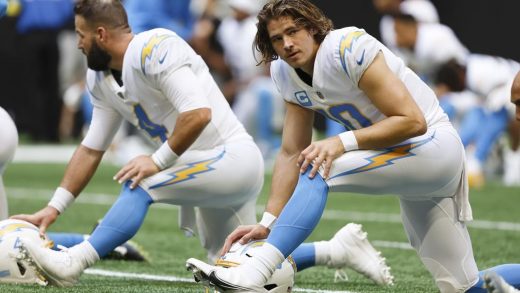:format(webp)/https://www.thestar.com/content/dam/thestar/entertainment/television/2023/04/08/messy-girls-are-all-over-tv-but-i-wish-there-was-a-series-that-showed-what-female-alcoholism-is-really-like/female_alcoholism_on_tv.jpg)
She’s been crying. I don’t think she’s showered in a few days. She looks exhausted and brittle, jeans sliding down her hips. She pulls at her waistband; “This is a problem,” she sighs. “I’m too skinny.”
I’m at the dry cleaner, carrying an armful of dresses to be hemmed because I’m three inches shorter than I want to be. The skinny woman keeps talking, but she doesn’t have to. With one look, I know who I’m dealing with: an alcoholic. It’s not the physical qualities, the slurring or the smell, but the evasiveness, the calculated vacancy.
“I just ran away from rehab,” she whispers. This is performance at its finest.
I tell her I am close to four years sober. She can get help if she wants to. It doesn’t really land because she’s not really here.
“Do you have Botox? Are your eyebrows real? Do you want to see pictures of my son?”
She shoves her phones at me, her baby looks around two.
“My husband gave him bangs.” I can tell she hates her husband.
The dry cleaner asks her to leave. She won’t. If she doesn’t want to see her husband, she should call her mother, I say. She should go back to rehab.
“You’re my only friend,” she tells me.
“I’m not your friend yet,” I say. “But I believe I came here for a reason. And I think you know what that reason is.”
She doesn’t need to say, “To prove that I can get sober, too?” because we both know that’s it. The thought hangs in the air between us. We practically stare at it. She gets up and leaves. I watch her walk into the liquor store across the street.
I wasn’t like her, I tell myself. I tell the dry cleaner, too, once we’re alone. But of course I was. All female drunks are the same in one important way. We don’t drink for pleasure; we drink to cope.
“What do you do?” the dry cleaner asks me. “Are you a therapist?”
“No,” I laugh. “I work in film and TV.” I have my whole life. I often wonder why I still do. The answer I arrive at is always the same: people need to see their experiences reflected back to them.
Even though “messy girls” are all over TV, I don’t see my illness or wellness in any of them. I find myself thinking about all the drunk heroines, in hopes of a conversational shortcut.
How do I explain my sobriety to a man I’m dating? To new friends in a new city? The reason I only order soda and bitters? Do I say that I go to AA sometimes and sometimes I don’t? That like all diseases I witness a spectrum of sickness in those basements. That my alcoholism, like most bad female behaviour, was quieter and less destructive than you’d imagine?
I wish there was a television series I could point to, an easy cultural touchstone, a shared character we could all understand.
Was I like Kaley Cuoco in “The Flight Attendant”? No. I couldn’t pretend I was sober for a whole year, be an AA star and an international spy, all while having fantastic bangs. Miranda in “And Just Like That,” the new “Sex and the City”? I didn’t read one controversial sobriety book and then dump all my vodka down the sink to never speak about it again. What about “Single Drunk Female,” the poppy version of young sobriety? Sort of but a little too funny; has sponsors and AA all wrong. “Euphoria”? Absolutely not. My drinking was not sparkly and often benign; I browned out after two drinks and never had sex with a drug dealer.
I try not to feel frustrated each time I see female alcoholism sanitized or dramatized on TV. Artists are trying their best; it’s just hard to get right. Still, there’s a cultural vacuum.
Where is my alcoholism on TV? Where are the women who have great jobs, nice boyfriends, friends, therapists but a strong death drive? The women whose swing-for-the-fences quality to their drinking surprises them but fools everyone else?
Statistically, women now binge drink more than men. As we drink more, and suffer greater health consequences, we’re less likely to get help. Is that shame? Is that delusion? Is that being really good at pretending to be OK? Is it being conditioned to keep secrets?
When I was my sickest, I put a huge amount of effort into fooling everyone: the hair, the makeup, the chatter. People either never saw me — I was so busy — or I was my very best self in public, counting the drinks until I could numb out again. The performance was the fun of it. No drunk actresses on TV are performing with the precision that real drunk women do.
My early sobriety, a constant state of stage fright, would make a bad television show. All I wanted to do was lie in a dark room, to drop out of life. I couldn’t listen to rap music; only Taylor Swift. I ate rice crackers with ricotta cheese. There was a pit in my stomach that wouldn’t lift. I felt heartbroken.
In a way, I was.
But like every tragedy, eventually it faded. Now being sober is just my life. Not special, not that hard, not anything other than normal.
I wish I could say, you know how so-and-so on that great cable show who is a few years sober likes going to bars? Me, too. See how she’s not weird about people getting drunk around her? I’m not either. I’m an alcoholic, sure, but not candy-glass.
The number of people who’ve worried that something they do one night would make me relapse shocks me. I want to tell them to stop being so vain. Any relapse will have nothing to do with you. It will have started, in every way but physically, months, maybe even years, before we met.
The final character I’m waiting to see on a show with a sobriety storyline is God. The only universal sober experience I see again and again is a religious one. Evangelical, spiritual or scientific, you feel a larger hand guiding you toward life when you’ve favoured death. Having the courage to believe that life can be better feels holy. Whether they want to or not, sober people see saints, angels and omens everywhere they look.
We’re back at the dry cleaners. After I finish my conversation with the owner, I leave, dazed.
Why did I walk into the dry cleaners at that exact moment on that exact day? How will that woman remember me? Was I a sign?
Will she eventually marry a new man, one that she likes? I imagine them watching a television show together, early in their courtship, that explains her condition. He will sit next to her on the couch, watch a version of her pain and understand her a little more. The fictional woman on TV with a drinking problem feels like everyone’s friend. In my fantasy, I watch her, too. I call on her when I need her. She steps in and saves me from having to explain the most private parts of myself. All of us bear witness to her suffering so I don’t have to keep explaining mine.
JOIN THE CONVERSATION
does not endorse these opinions.


